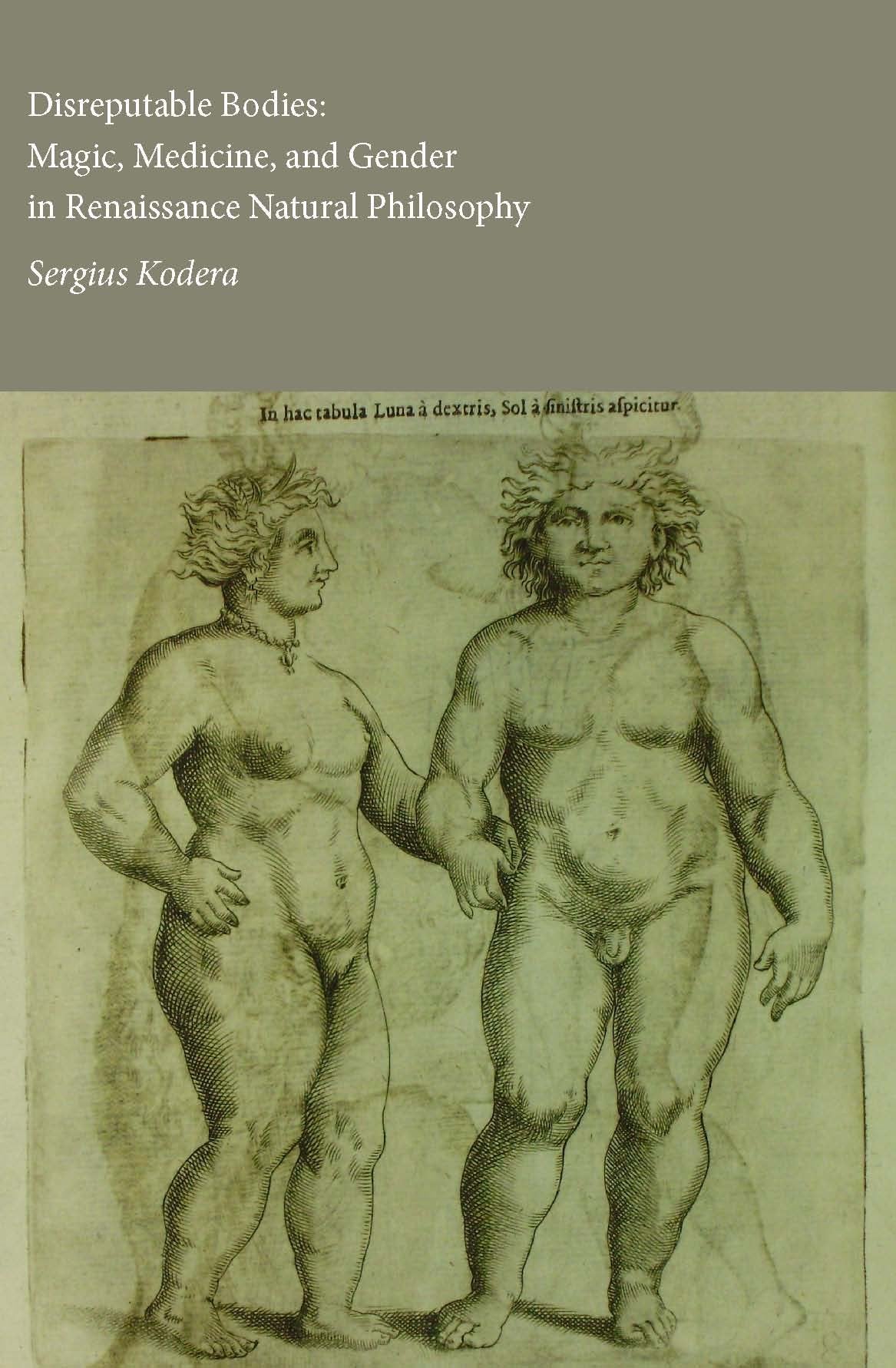Disreputable Bodies: Magic, Medicine, and Gender in Renaissance Natural Philosophy
By Sergius Kodera - ES23
Overview
Through a close reading of rarely studied materials, Sergius Kodera examines the contested position of the body in Renaissance philosophy, showing how abstract metaphysical ideas evolved in tandem with the creation of new metaphors that shaped the understanding of early modern political, cultural, and scientific practices. The result is a new approach to the issues that describes the function of new technologies (such as optics and distillation) and their interaction with popular creeds (such as witchcraft and folk medicine), as well as their relationship to the newly discovered ancient Greek and Roman texts that captured the attention of Renaissance intellectuals. The text also investigates, for the first time, how some philosophers forged their original syntheses from newly available and traditional materials. In so doing, these philosophers contributed in unexpected ways to the formation of new cultural practices—practices that entailed largely unexplored conceptualisations of physical bodies but also linked inextricably to the formation of new and striking metaphors for the physical world.
Sergius Kodera teaches philosophy at the University of Vienna (Austria). He has published on Marsilio Ficino, Fernando de Rojas, Leone Ebreo, Matteo Ricci, Girolamo Cardano, Giambattista Della porta, and Giordano Bruno.
320 pp.
ISBN: 978-0-7727-2060-3 softcover
Published: 2010
Contents
Introduction: Disreputable Bodies
1. “Nymphomaniac Matter: The Prostitute as Metaphor for the Body in Italian Renaissance Philosophy”
2. “Matter as a Mirror: Marsilio Ficino and Renaissance Neoplatonism”
3. “Lady Vampires: Marsilio Ficino on Blood”
4. “Disease, Infection, Cognition: Air as a Universal and Daemonic Mediator in Renaissance Aristotelianism and Neoplatonism”
5. “Three Elements Instead of Four?”
6. “Masculine/Feminine. The Concept of Matter in Leone Ebreo’s Dialoghi d’amore or the Difficult Question: Who’s on Top?”
7. “Renaissance Readings of Aristophanes’ Myth from Plato’s Symposium (189C-193D)”
8. “Meretricious Arts: The Astrological Significance of Surgical Interventions into the Body in Giambattista Della Porta”
Epilogue: Deconstructing the Renaissance Magus
Reviews
Renaissance Quarterly, 64:2 (Summer 2011), pp. 580-581. Reviewed by Leah DeVun.
The Sixteenth Century Journal, 43:1 (Spring 2012), pp. 211-212. Reviewed by Laura Seymour.
Couldn't load pickup availability


